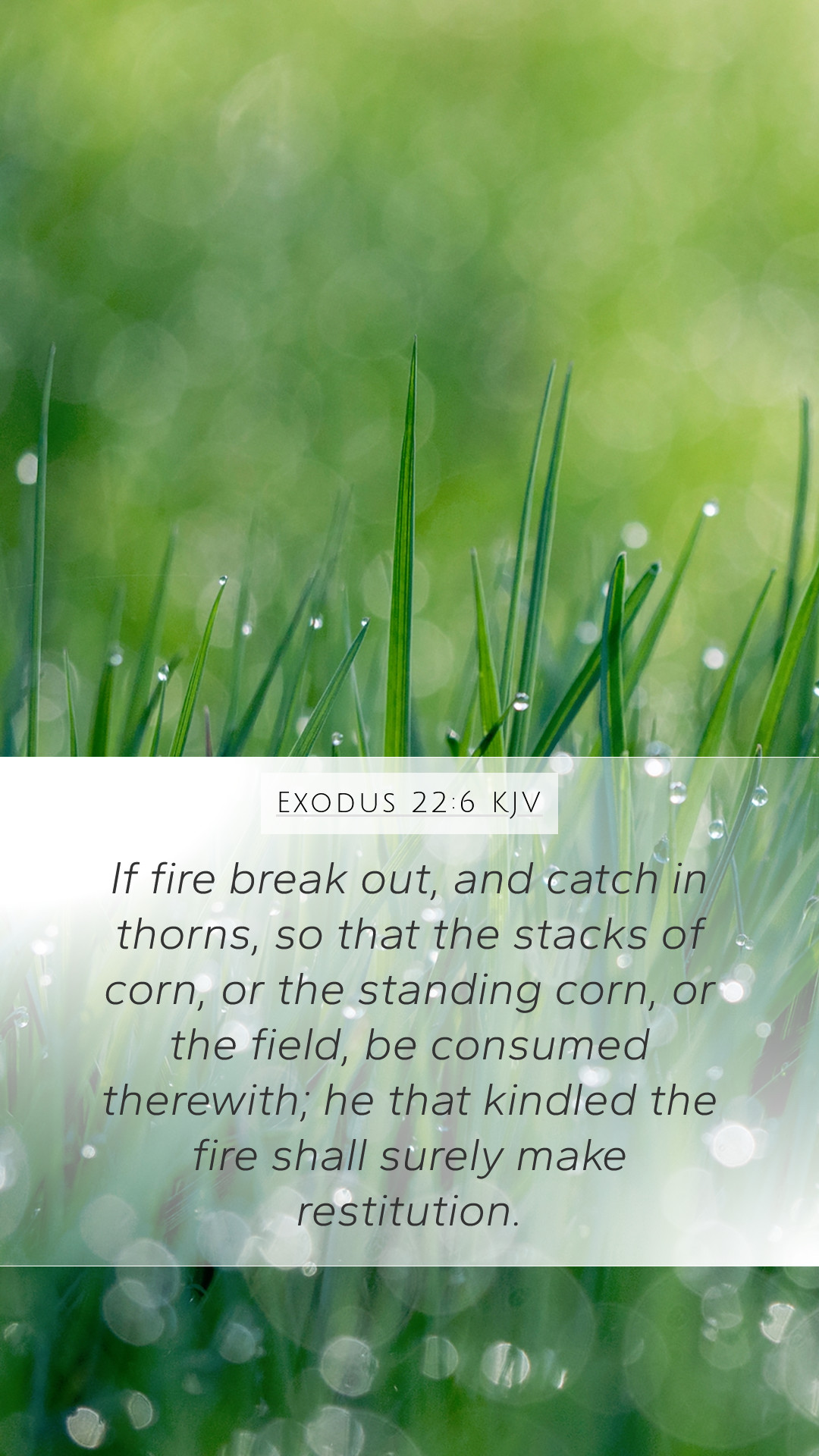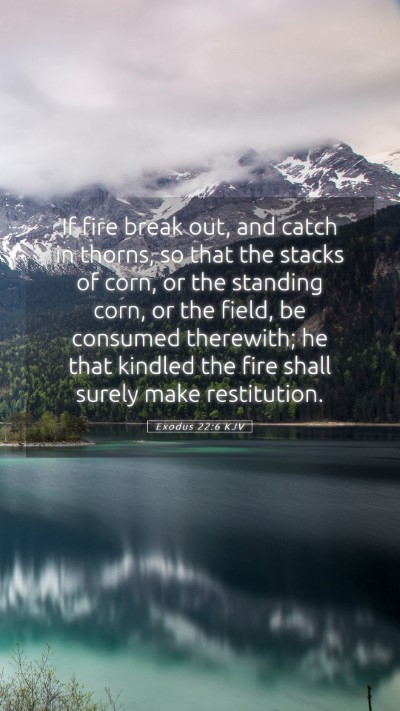Understanding Exodus 22:6 - A Comprehensive Bible Verse Commentary
Bible Verse: Exodus 22:6 states, "If fire breaks out and spreads to thornbushes so that it burns shocks of grain or standing grain or the field itself, he who started the fire must make restitution."
Overview of Exodus 22:6
This verse deals with responsibility, accountability, and the implications of one’s actions. It highlights the importance of taking precautions and being accountable for potential harm caused to others.
Meaning of Exodus 22:6
This scripture serves as a legal principle that underscores the significance of responsibility in human relationships and community living. It lists the obligations of a person whose actions unintentionally cause damage, emphasizing the need for restitution.
Insights from Commentaries
- Matthew Henry: Matthew Henry emphasizes that this law is an expression of justice. He points out that negligence can lead to significant loss, and those who are careless should be accountable for their actions. Henry underscores that the principle of reparation is integral to community ethics.
- Albert Barnes: Barnes captures the legal ramifications of this law. He notes that even accidental harm carries the obligation to compensate the victim, thereby reflecting God’s justice that seeks to maintain harmony among His people.
- Adam Clarke: Clarke provides a nuanced understanding of the term "fire" as it relates to danger and destruction. He explains that such imagery suggests the inherent risks in life and the need to be perpetually vigilant about the implications of our actions.
Application of Exodus 22:6
This verse is applicable in contemporary contexts, where personal responsibility remains a crucial aspect of ethical living. Applying this teaching can guide individuals in making thoughtful decisions to prevent harm to others.
Practical Applications
- Awareness of Consequences: Like the fire in the verse, one's actions can rapidly lead to unforeseen consequences. This principle encourages contemplation of potential outcomes in daily decisions.
- Restorative Justice: The emphasis on restitution draws attention to restorative practices within communities, focusing on repairing relationships rather than merely punishing wrongdoers.
- Community Ethics: This teaching fosters a spirit of mutual care and accountability that is essential for healthy relationships within communities.
Cross References
This verse intersects with various other biblical teachings regarding responsibility and restitution, including:
- Leviticus 24:18: "Anyone who takes the life of a human being is to be put to death." - The principle of accountability for wrongdoing.
- Exodus 21:33-34: Speaks about the obligations of owners of property that causes harm to others.
- Numbers 5:6-7: Discusses the restitution required for a wrong against a neighbor.
Conclusion
Exodus 22:6 serves as a foundational law that echoes throughout the Bible, offering rich insights into the nature of responsibility and justice in human interactions. By understanding scripture through such verses, we engage in meaningful Bible study insights that enrich our spiritual lives.


